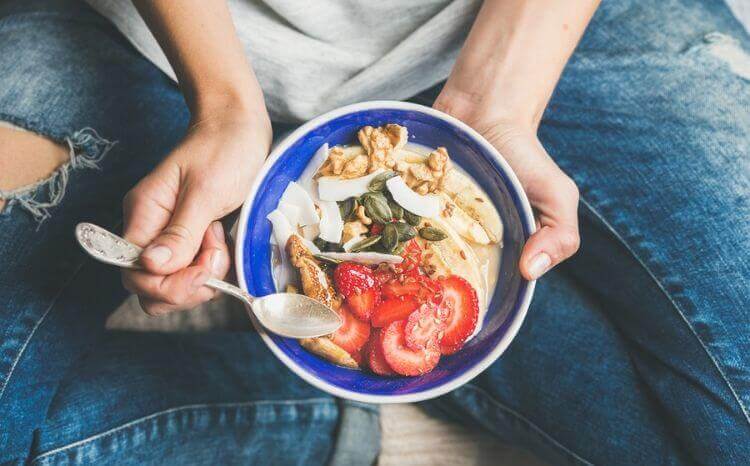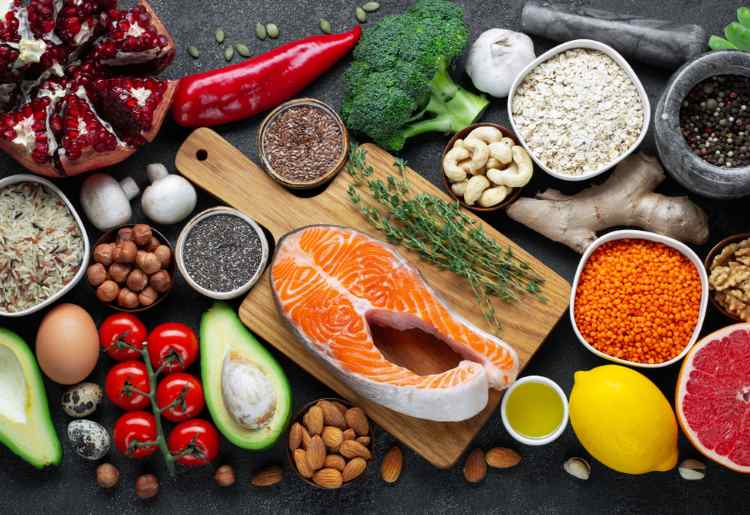Before you throw your hands up in despair, there’s an increasingly popular health trend—not diet—that doesn’t restrict any food groups or the hours that you’re allowed to eat. Plus, it can help you lose weight, reduce the risk of diabetes, heart disease, and cancer. No, it’s not a magic potion, it’s clean eating.
What is Clean Eating?
People who practice clean eating don’t think of it as a diet, but rather, as a way of life. The idea behind clean eating is not to cut out any food groups, but to be mindful of the food you put into your body and what that food is made of. Is it plant-based and all natural? Is it filled with artificial chemicals and sugar? Is it a GMO (genetically modified organism) or organic?
Clean eating tells you what you already know intuitively—to stay away from unnatural, processed, chemical-laden foods. Replace them with whole grains and a plant-based diet, and you will experience weight loss and numerous health benefits.
How Does Clean Eating Lead to Weight Loss?
When you eat processed food (typically high in refined carbs and sugar), your body is forced to produce a lot of insulin to handle the high levels of glucose in the bloodstream. Of course, some glucose is okay, but when we’re overloaded with glucose and subsequently insulin, the glucose gets converted to fat instead of energy. This leads to weight gain.
When you stop eating processed, highly sugary foods,your hormones shift from fat-storage mode into fat-burning mode. Hurrah! And that will increase your metabolism and subsequent weight loss.
If your main reason for practicing clean eating is weight loss, here are some things to be aware of:
- Fake healthy foods. If you’ve undertaken clean eating but haven’t seen any weight loss results, you may want to double check that what you’re eating is actually “clean.” Food companies today are required to be transparent about their ingredients, so take advantage and read the labels on your food.
Soy milk, for example, can often contain sugar. Low-fat milk is a modified version of whole milk and doesn’t afford the same health benefits. Canned fruits can often contain added sugar, and granola, made from oats, one of the healthiest grains around, often comes packed with sugar and other junk.
The bottom line is, if you really want to practice clean eating, you need to read food labels carefully so you know exactly what you’re putting into your body.
- Quantities. Clean eating doesn’t give you license to eat bucketfuls of brown rice, millet, and buckwheat. Or 20 organic melons. Too much of any one food can sabotage the weight loss that you’re trying so hard to achieve. While you can enjoy different foods, make sure to eat carbs and natural sugars in moderation.

Planning and Preparation—The Keys to Sustainable Clean Eating
While planning and preparation are important to any diet, for clean eating they are essential. If you don’t plan your meals and take the time to prepare them, it’s unlikely that you’ll be able to sustain clean eating, at least not the way it’s meant to be.
Here’s why: Clean eating is mostly plant-based, and vegetable-based dishes usually take more time and effort to prepare. Especially if you’re adding whole grains or protein, which are allowed, you’re talking about preparing meals that involve a lot of steps. It’s not like Atkins when you can just fry up some bacon in butter and call it a day.
And don’t forget about looking up clean eating recipes—that alone can take hours! After all, you’ll be working with fairly basic, plain ingredients, and you’ll want to turn them into delicious meals.
And this is truly where planning and preparation are essential.
Plan your meals. That’s right, I’m talking about a weekly—or even biweekly—menu, so that you can minimize:
- The number of times you go to the supermarket each week
- Time spent in the supermarket
- Time spent looking up recipes
- Time spent preparing food
To create a meal plan, give yourself an hour to look up recipes—this will be the only time you look up recipes every week/every other week. After that, you won’t have to think or spend another minute on it.
Once you find recipes, you can make a shopping list and get everything you need in one trip to the supermarket. And then, you can even save time on food prep by preparing bulk batches of legumes, grains, and veggies, and portioning them in your freezer.
While it may take a brief adjustment period to get used to creating meal plans, it is totally worthwhile. Because this is a simple, practical way to help yourself stick to clean eating.
You may also like:
When You Have the Will, but Not the Time
You may be passionate about getting healthy but simply lack the time to do so. Work, kids, errands, and possibly sleep is pretty much what your life revolves around, so finding the time to cook healthy, gourmet delicacies just doesn’t seem like reality.
If that’s the case, there are meal delivery services that can help you—services that cater specifically to health-conscious people like yourself and that offer a variety of weight loss meal plans. Many services also offer ready-to-go organic meal kits, with non-GMO foods and hormone-free meat and chicken (HelloFresh, GreenChef, SunBasket), which means they are perfect if you want to practice clean eating. You can browse different options and see which meal plans appeal to you—clean eating is wonderfully flexible, so you don’t need to be boxed into specific menus.
Is Clean Eating Worth the Money?
Whether you subscribe to a meal delivery service like Fresh and Easy or buy healthy ingredients at the supermarket, if you start eating clean you’ll probably notice an increase in the amount of your food bills. Because, unfortunately, today’s reality is that junk food is cheap and healthy food is more expensive.
The question then becomes, is it worth it?
Of course, only you can answer! But here’s some food for thought, as it were:
Eating clean can raise the cost of your weekly/monthly food bills. But if you stick with it long-term, it can decrease your risk of heart disease, cancer, and diabetes—all of which come with a very high price tag (not to mention, they’re terrible). So perhaps think of clean eating as an investment, an investment in yourself. If you invest in healthy food now, you’re setting yourself up for a high ROI in the future.

